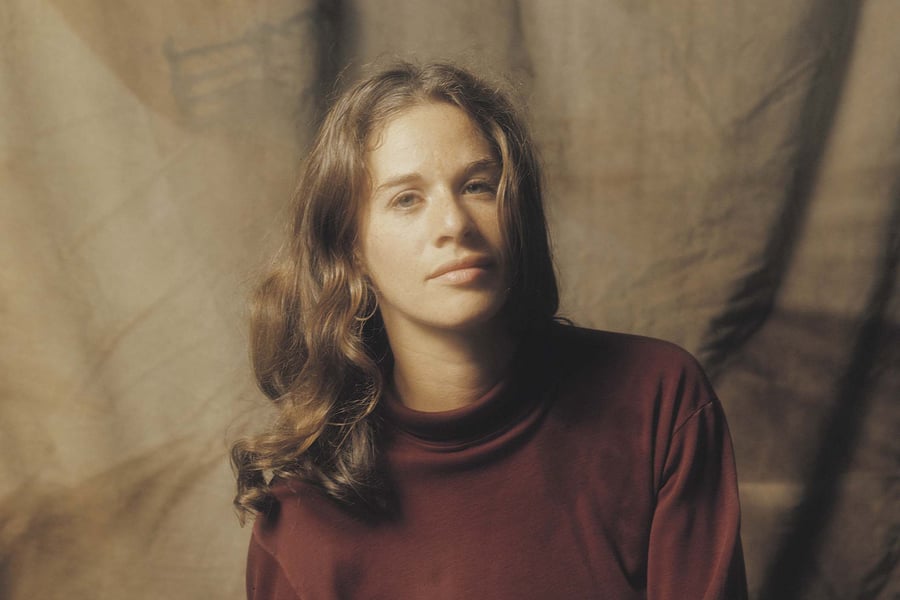All these decades later, it’s easy to take Tapestry for granted. Like other 1971 staples, from Led Zeppelin IV to Joni Mitchell’s Blue, Carole King’s second solo LP — released 50 years ago today, and recently named the 25th greatest album of all time by Rolling Stone — has always seemed to be there. After its release, it was the Number One album in the country for an astonishing 15 weeks straight, a feat that seems unimaginable now. (Adele’s 21 topped it, at 24 weeks, but that’s the recent exception.) And subsequent generations may know it from the remake — with revised, less subservient lyrics — of “Where You Lead” done for The Gilmore Girls.
But sales figures, ubiquity, and Grammy Awards (Tapestry won Album of the Year and also walked away with three other awards, including Song and Record of the Year) were never the sum of what Tapestry accomplished. Within its dozen songs were any number of stories that lent it a resonance and scope rare in pop albums of the time, and some of those stories could also apply now.
As anyone who saw the Broadway show Beautiful knows, King had an entirely different life before Tapestry: living on the East Coast, married (to fellow songwriter Gerry Goffin) and having children while writing and recording demos as part of the Brill Building song factory. After breaking up with Goffin and moving to California in 1968, King transitioned into a new phase, and style of music — more Laurel Canyon and less Times Square. Tapestry told that story, slyly, by way of its remake of “Will You Love Me Tomorrow” (a Goffin-King hit for the Shirelles in 1960), which provided a connection to King’s past; the hushed, pared-down arrangement hinted at a more adult, less Top 40 sound.
Tapestry also rolled around just in time for the burgeoning women’s-rights movement. Later that year, Helen Reddy’s “I Am Woman” would become the first major, clear-cut feminist pop anthem, and 1971 also saw the arrival of not just Blue but Carly Simon’s self-titled debut. Tapestry communicated that cultural shift starting with its cover image of King, in a gray sweater, curled up near the window in her L.A. home. She was alone but looked assured, comfortable, at ease with herself. The pert hairdos and dresses seen in Sixties photos of her were now relics of the past and another life.
That newfound confidence and strength spilled out onto the record. For the first time, King wrote the bulk of the lyrics herself. The opening song, “I Feel the Earth Move,” joyfully expressed that feeling of being swept away by a new love, but King’s piano, and the back-and-forth solos between her and guitarist Danny Kortchmar, communicated strength and command. (King always knew exactly how she wanted her records to sound and always took charge of her sessions, even if Tapestry was officially produced by Lou Adler.) Similarly, the narrator of “It’s Too Late” is almost matter of fact when surveying the end of a relationship; she sounds rational, not distraught. For the 50th anniversary, an album outtake, “Out in the Cold,” has been resurrected after first appearing as a bonus track on a 1999 CD reissue. A confessional about being unfaithful to a lover and paying the price, it feels rational and adult (if not totally empowered).
With its cameos by Mitchell and James Taylor (a couple at the time), Tapestry also fit snugly into the singer-songwriter genre that was beginning to take over pop. On her “You’ve Got a Friend,” which Taylor also covered that same year, and the plaintive “Home Again,” King showed she could be as contemplative and introspective as her new peers. Her version of “(You Make Me Feel Like a) Natural Woman” — a song she’d co-written with Goffin a few years earlier — was equally stripped down and unadorned, especially after Aretha Franklin’s takeover of the song. (King was cutting spectral remakes, even of her own work, long before the indie crowd got hold of that idea.)
Yet as much as we associate the album with King’s famous friends and the balladeer-diarist style of the moment, Tapestry was above all a glorious pop record. King may have relocated and left her New York studio days behind, but she took with her a sense of hooks and craft that helped the album transcend the voice-and-guitar arrangements common at the time. “Beautiful” had a show-tune bounce, the outlaw-rebel tall tale “Smackwater Jack” was galloping R&B, and “Where You Lead” (one of several songs with lyrics by her collaborator Toni Stern) conjured the effervescent bop of the Brill Building. Singer-songwriters who tried to sound “funky” could sound wooden, but King never did.
Love Music?
Get your daily dose of everything happening in Australian/New Zealand music and globally.
The larger story told in Tapestry, the one that may still speak to people, is personal reinvention. The days of songwriters for hire were dying off, replaced by bands and singers who increasingly wrote their own material and directly expressed their own feelings. King had just turned 29 when Tapestry was released, but the album announced that she had found herself, in the old parlance, as middle age began looming in the distance. Is that a story that could resonate as much now in the Covid era, as people reassess their lives and careers and make the changes they always wanted to make? Time will tell, but if they make those decisions, Tapestry will be there, waiting for them.
From Rolling Stone US



































